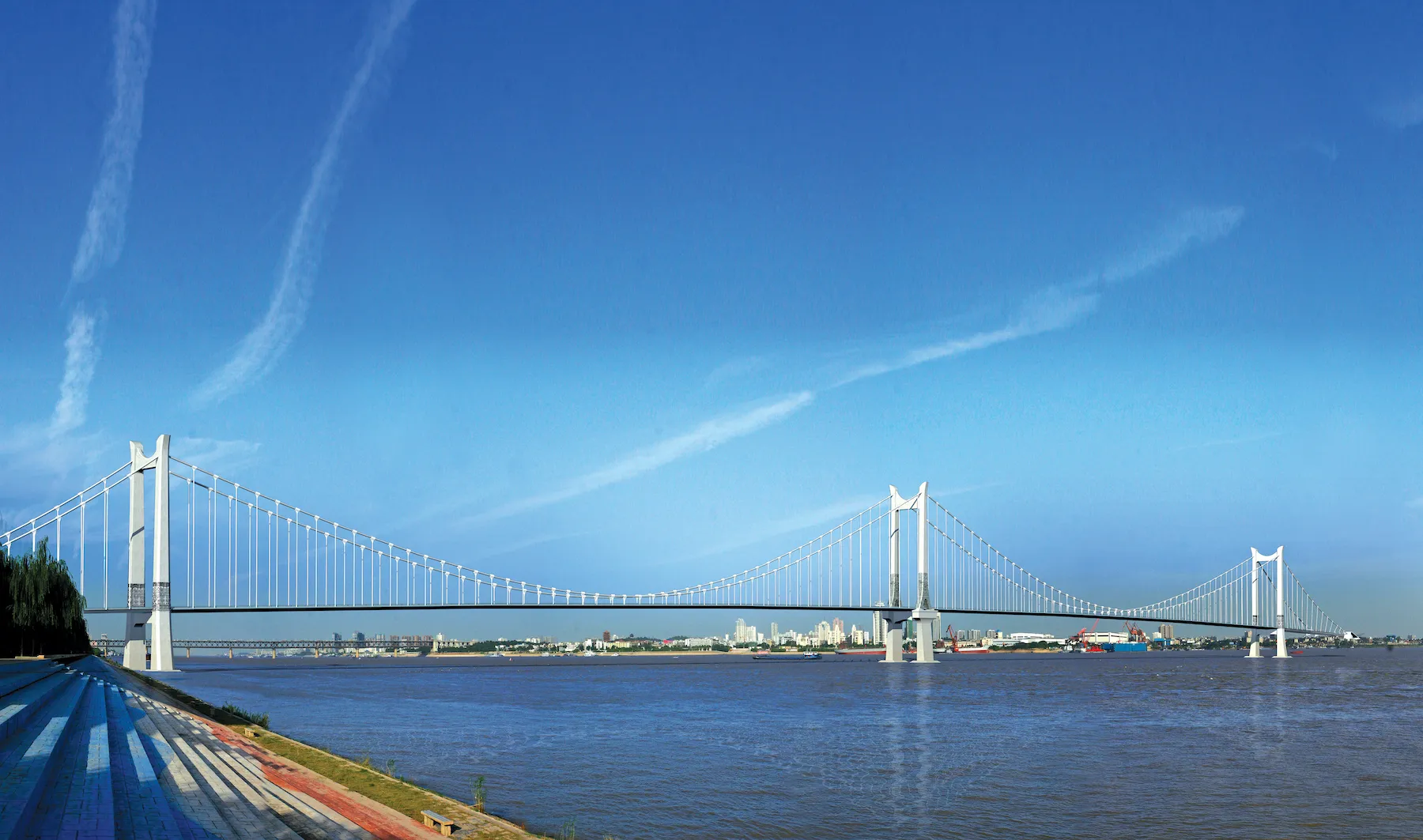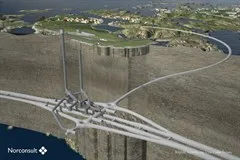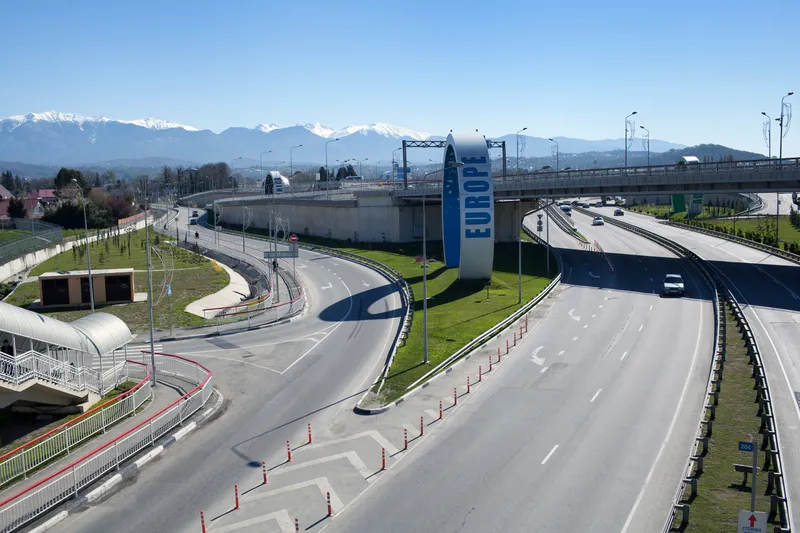The project to build a bridge to link Chiloe Island with mainland Chile has been planned for some time. However an earlier design was rejected as being too costly by the then
Once the bridge opens to traffic it will replace a ferry service that connects with Chiloe Island at present. Journey times will be reduced from 30-45 minutes at present using the ferry service to just 2-3 minutes across the tolled bridge. The bridge project is intended to boost the economy of Chiloe Island and will help develop tourism in the area.
Chile’s Chacao Bridge under construction
Construction work on Chile’s Chacao Bridge project is now underway. The 2.75km suspension bridge will connect the Chilean mainland with Chiloe Island. The bridge structure has been designed to flex so that It can cope with severe earthquakes, which present a risk in the area. The project is costing US$700 million to carry out with South Korean company Hyundai heading the construction. Building the link should take around five years with its completion set for 2023, although the work could be finished earlie
March 6, 2018
Read time: 2 mins
Construction work on Chile’s Chacao Bridge project is now underway. The 2.75km suspension bridge will connect the Chilean mainland with Chiloe Island. The bridge structure has been designed to flex so that It can cope with severe earthquakes, which present a risk in the area. The project is costing US$700 million to carry out with South Korean company 236 Hyundai heading the construction. Building the link should take around five years with its completion set for 2023, although the work could be finished earlier if productivity targets are achieved.








